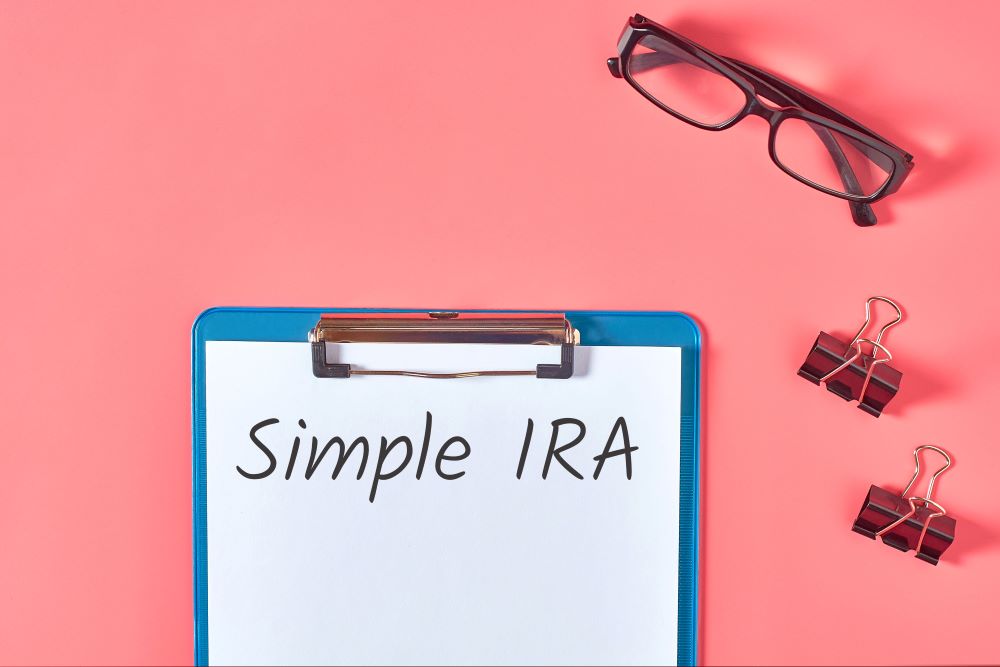How To Invest in Real Estate with a Self-Directed IRA
Written By: Daniel Gleich

Real estate continues to be a popular topic, from house-flipping television shows to your friend renting out an apartment or a young couple moving into a house next door. This prevalence has led to real estate becoming one of the most popular alternative investments. Are you looking to get in on the action? Let's explore how to purchase real estate with a Self-Directed IRA.
Can I Invest in Real Estate With an IRA?
Yes! Most IRA account holders assume that an IRA can only invest in Wall Street products like stocks, bonds, and mutual funds. The reason for this is that these assets are the only options available to them at brokerages. However, you can use a Self-Directed IRA to invest in real estate and a variety of other alternative assets as well, including private placements and promissory notes.
What are the Self-Directed IRA Rules for Real Estate?
The most important rule is to always think of your IRA and personal funds as two separate entities. Technically, the IRA owns the property, and you, as the account holder, are the manager. Think of it as if your IRA is a company, like Amazon. When you invest in Amazon, Jeff Bezos is responsible for all cash-flow decisions. With a Self-Directed IRA, you are the manager who is responsible for all decisions and transactions. However, you cannot receive a material benefit from your IRA asset. This would be called a prohibited transaction. The good news is that once you get the rule down, it's really easy to be compliant.
Self-Directed IRA Real Estate Investments: 7 Things To Consider
Now that you understand what a Self-Directed Real Estate IRA is, you need to also understand its many facets. There's a lot to take into consideration when it comes to a Self-Directed IRA and real estate, like depreciation, portfolio diversification, and deferred taxes, just to name a few.
- Diversification: Each asset reacts differently to the same event. Therefore, to minimize risk, investors may want to purchase a variety of assets. This does not prevent loss or promise gains, but it can aid you in accomplishing long-term financial goals.
- Steady Income: Unlike the volatile stock market that fluctuates, real estate usually retains its value. Property value tends not to fluctuate as much as stock prices.
- Tangible: Real estate is a tangible asset that can never lose all of its value. Even if the real estate market value were to decrease, you will still have the physical property that can be sold.
- Deferred Taxes: As with any Traditional IRA investment, the profit generated is tax-deferred until you take a withdrawal. If you have a Roth IRA, profits accumulate tax-free. Active real estate investors may buy, sell, or flip properties while maintaining the tax deferral status of their IRA.
- A Lot to Manage: Depending on your real estate investment, managing the property may take a lot of time. From fixing issues that arise such as the plumbing leaking to paying the electricity bills, a real estate investment can be time-consuming.
- Rent Controls: If you are investing in rental units, there’s a possibility that the local government may impose rental controls, which are limits to what you can charge as rental rates to your tenants.
- UBIT/UDFI: When investing in real estate, it’s important to keep UBIT or Unrelated Business Income Tax, and UDFI or Unrelated Debt Financed Income in mind. UBIT is a tax that applies to your gains if you are running an active business out of your IRA. UDFI, is a tax that applies to any income you earn from purchasing an investment with borrowed money, such as a non-recourse loan.
How to Use a Self-Directed IRA for Real Estate Investing
After doing your due diligence and deciding to invest, you need to understand how to invest in real estate with a Self-Directed IRA. Let's use the example of Jonah, who is interested in using a Self-Directed Roth IRA to buy a property.
Step 1: Open a Self-Directed IRA
Jonah has been researching and speaking to his financial advisor about owning real estate in a Self-Directed IRA. After conducting research, he decides to open a Self-Directed Roth IRA with a custodian who is willing to answer all of his questions and is knowledgeable about the real estate investing process.
Step 2: Fund Your Self-Directed IRA
Since Jonah already has a standard Roth IRA, he is able to transfer the desired amount of funds from that into his new Self-Directed Roth IRA.
Step 3: Establish an IRA LLC, If Applicable
Jonah is aware that a Self-Directed IRA must be held by a regulated custodian but recognizes the option to have checkbook control by opening a Self-Directed IRA LLC. He chooses the checkbook control model because he wants to be able to handle all cash flow transactions in real-time, without having to contact his custodian first. This saves him both time and money.
Jonah's custodian establishes an LLC in the name of his IRA. Then, Jonah opens a Self-Directed IRA LLC checking account at his local bank and his custodian moves his funds to the LLC checking account.
Step 4: Invest in the Property of Your Choice
Jonah purchases a property through his IRA LLC checking account in a beautiful location that fits his budget. He has enough funds in his Self-Directed IRA to purchase 100% of the investment, making him the sole owner of the property and the manager of all IRA transactions.
Ongoing Maintenance
All rental income and expenses are handled through the IRA LLC checking account. The rental checks keep coming in, and Jonah's retirement account continues to grow. Since he has a Roth IRA, the profit earned is tax-free. Jonah is happy with his investment and is thinking about purchasing a second property in the near future.
Key Takeaways for Using a Self-Directed IRA to Invest in Real Estate
If you've ever wondered, "Can a Self-Directed IRA purchase real estate?" the answer is yes! Using a Self-Directed IRA to purchase real estate is a great way to diversify your portfolio and have protection against economic fluctuations, all within a tax-advantaged retirement account. However, before creating an account and investing, be sure to do your due diligence and discuss with a financial professional if this investment is right for you. You may also speak to a Self-Directed IRA Specialist about any questions involving the investment process.
Disclaimer: All of the information contained in our website is a general discussion for informational purposes only. Madison Trust Company does not provide legal, tax or investment advice. Nothing of the foregoing, or of any other written, electronic or oral statement or communication by Madison Trust Company or its representatives, is intended to be, or may be relied as, legal, tax, investment advice, statements, opinions or predictions. Prior to making any investment decisions, please consult with the appropriate legal, tax, and investment professionals for advice.










